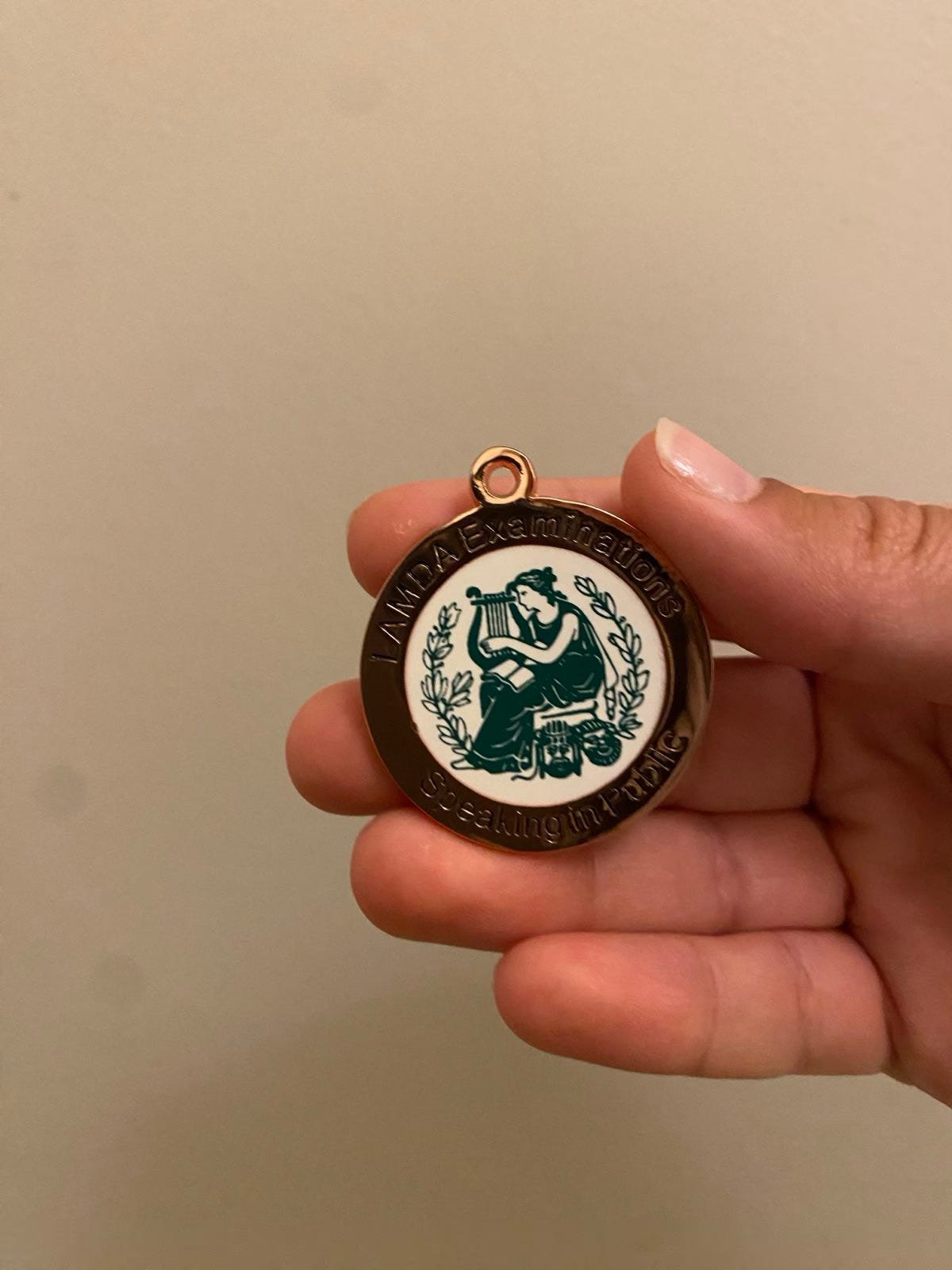Public Speaking Confidence comes from what we want to say and who we really are.

One of my earliest memories of my own public speaking training is a leadership training course at a national youth club event. Two of the teenagers that ran the international executive committee opened and closed the weekend with sketches that seemed to suggest one tiny child, played by one of them, was a natural-born leader and the other wasn’t. The final scene of the playlets showed the children’s abilities the other way around as they grew up. The message was ‘There’s no such thing as a natural-born leader’. It was very helpful for me as a very shy teenager to hear that: what’s gone before doesn’t equal what’s ahead. We grow. We choose. We grow more. We choose more.
My LAMDA student Monica, who has just received her distinction for Bronze Medal (Grade 6) Public Speaking, is – to use the profession term – a zillion zillion times more confident a speaker than I was at that age. However, two things about Monica’s courage and thoughtfulness in the preparation of her speeches reminded me of that message I’d so needed to hear back then – and that I believe we’re all better for hearing, even if that just means reminding ourselves.
Subscribed
- Everybody’s just as scared as you are. So, welcome the audience to your space.
When I talk about ‘welcoming the audience to your space’, it’s a reminder they want a good relationship with you and what you’re here to say. It’s always a relationship, even when it’s just you and the camera. Monica worked with me over Zoom for her speeches and her growing confidence came from her growing clarity of ‘who’ we’d decided her imaginary audience was of which I was a part. Speaking to an audience isn’t about proving ourselves. It’s about connecting. Monica did this beautifully not just because she picked brilliant topics she cared about (more of that in a minute) but because she dealt with any worries and concerns by focusing not on herself but on her objective: sharing with someone who needed to hear what she had to say. That’s how a speaker deals with their own insecurities and the audience’s at the same time.
- It’s not about being interesting. It’s about being interested.
This is one of my First Draft Commandments in Your Creative Writing Toolkit because it’s the difference between finishing an authentic draft and standing in your own way by mentally bringing the audience too soon. But it doesn’t stop at the first draft. When Monica wrote her speeches authentically (from her own beliefs and interests) and specifically (using knowledge she backed up with references, research and experience; using vocabulary suited to the imagined audience’s age and interests), she could show up with her whole self. It’s not putting on a mask to keep yourself separate, it’s utilising who you are and what you know to reach out and make someone else feel connected.